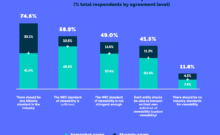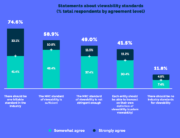This morning, Facebook responded to the ongoing Cambridge Analytica scandal by announcing a series of changes to its privacy settings—essentially making it easier for users to find them, control what they share, and download and delete their data. The company—which came under fire for not doing more sooner to protect the data and for its initial response to the revelations—also committed to changing its terms of service in a way that adds more transparency to its data policy, without giving itself new rights to user’s data.
“The last week showed how much more work we need to do to enforce our policies, and to help people understand how Facebook works and the choices they have over their data,” Erin Egan, vice president and chief privacy officer for policy, and Ashlie Beringer, vice president and deputy general counsel, wrote in a blog post. “We’ve heard loud and clear that privacy settings and other important tools are hard to find, and that we must do more to keep people informed.”
Facebook last implemented changes to its privacy controls and settings in January, when it published for the first time its privacy principles, and shortly afterward launched what it calls Privacy Center, a one-stop shop for controlling privacy settings.
The previous changes were made in advance of Europe’s General Data Protection Regulation, which begins May 28, and requires tech companies operating in the EU to get “unambiguous” consent from users before collecting their data, give those users easy methods for opting out of consent, and give them the right to deny companies using their data for targeting marketing. GDPR also grants users the right to get their data from companies like Facebook. Violations of the new system come with hefty fines, up to 4% of annual turnover.
Read More at The Original Article: www.fastcompany.com









